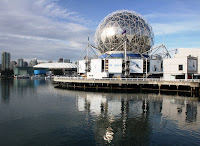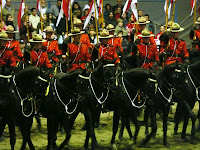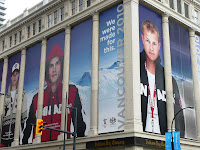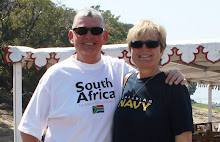 Hard to believe that on 21 March at the conclusion of the Paralympic Games it will all be over.
Hard to believe that on 21 March at the conclusion of the Paralympic Games it will all be over. Vancouver’s Olympic Games started with the horrifying death of an athlete and was followed by a series of glitches, none of which was lost on the British press. That venerable institution, The Times ridiculed Canada’s “Calamity Games”, but as time went on was forced to soften its tone as the Games got into stride. The rest, of course, is history.
And then there is Sochi, the Black Sea port city that will host the next Winter Olympics in 2014. Russia, uncharacteristically, had a poor medal showing at the Vancouver Games with the Russian President abruptly cancelling a scheduled visit to the closing ceremony, apparently in disgust. Their hockey team’s showing must have been the final straw.
“The Canadians came on to the ice like gorillas out of a cage” – supposedly a quote from the Russian goaltender. Canada won convincingly and the Russian superstars looked as though they were in shock.
Many of the Russian contingent I met in Vancouver didn’t smile a lot or spend much time on the usual pleasantries. In fact it became a bit of a game for me, as I tried to make eye contact and get a smile. The day of the Canada/Russia hockey game I smiled to those who met my gaze and muttered “Go Canada Go ---- but may the best team win”. Not much reaction.
The next morning I saw the same group of people, and one of the more stoic, took my arm and squeezed it slightly – “Your team better” he grimaced seriously.
Science World was Sochi House for the duration of the Games. The line up for the pavilion was long but people around us chatted amiably. It was a Spring-like day and there was lots to talk about as we slowly reached the entrance.
Once inside a young lady explained where Sochi was – most of the crowd didn’t seem to realize it was on the Black Sea. Movies were being shown, in Russian. Folk singers were in full voice, entertaining an appreciative crowd.
And then we went to the shop where official, and extraordinarily expensive, Russian team merchandize was on sale.
One of the other “must sees” during the Olympics was the Russian tall ship Kruzenshtern docked at Lonsdale Quay.
The Kruzenshtern, built in Germany in 1926, is one of the tallest sailing ships in the world and had to enter Vancouver's inner harbour at low tide.
This enormous vessel was absolutely magnificent and the Vancouver skyline provided a stunning backdrop that sunny afternoon. And yet while ship tours were being offered little English was spoken.
What a missed opportunity to learn more about one another - some good old fashioned PR would definitely have helped the cause.
So as the Olympic flag was passed between Vancouver and Sochi Mayors and the Moscow State Chamber Choir sang a stirring rendition of the Russian Federation anthem, I wondered what the next few years would bring as Sochi, and London, prepare for their "big shows".
When the circus comes to their respective towns in 2012 and 2014 I wish London and Sochi well - in their hearts they know that Vancouver 2010 set the gold standard and will be a very hard act to follow.






 And the sea of red and white everywhere, impromptu renditions of our National anthem and street hockey games that seemed to break out in exuberant moments of pure joy as another medal was nailed down by Team Canada (in addition to 14 gold, we managed 7 silver and 5 bronze medals).
And the sea of red and white everywhere, impromptu renditions of our National anthem and street hockey games that seemed to break out in exuberant moments of pure joy as another medal was nailed down by Team Canada (in addition to 14 gold, we managed 7 silver and 5 bronze medals). 













.jpg)
.jpg)
